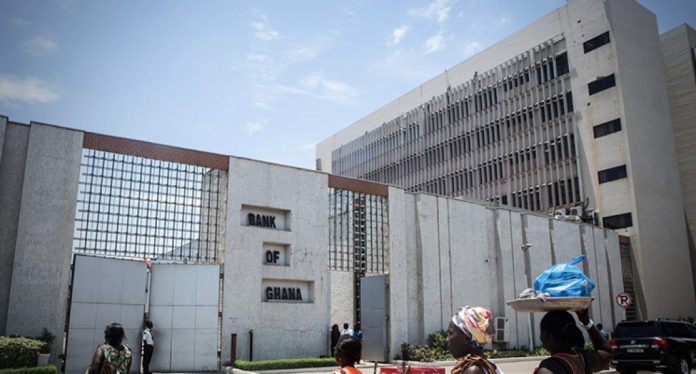Bank of Ghana says it is proud of the Domestic Gold Purchase Programme because of it has helped to stabilise the economy, as well as strong in helping to keep the exchange rate stable.
Addressing the media at the press briefing for the 114th Monetary Policy Committee (MPC) meetings yesterday in Accra, the BoG Governor, Dr. Ernest Addison, said the programme had been innovative and has been very strong in helping stabilise the economy, as well as strong in helping to keep the exchange rate stable.
“We have bought gold to the tune of over $700million for reserves. We have also bought gold for oil probably higher than the $700million. If you put the two together, we are looking at over $1.4 or $1.5billion just from our domestic gold purchases programme,” he said.
“It is the single most important foreign exchange source in 2023 nearly doubled the amount of money that we have received from the IMF [International Monetary Fund]. We are very proud about that particular initiative. We’ve bought about 13.7 tonnes. We started this programme when we had in our reserves 8.7 tonnes. We’ve more than doubled the volumes of tonnes that we held in our reserves just about two years ago,” he added.
On the domestic front, Dr. Addison said the overall improving macroeconomic conditions including the relatively strong economic growth as well as a drop-in inflation in August were proof that the policy mix under the three-year IMF Extended Credit Facility is beginning to yield results.
Per the Ghana Statistical Service (GSS) latest price reading in August 2023, there has been a fall in headline inflation, after consecutive upward trends since May 2023. Headline inflation dropped to 40.1 percent, from 43.1 percent in July and 42.5 percent in June 2023, respective-ly.
The observed decline in inflation was broad-based, with a stronger easing of food price pres-sures and the sustained easing of non-food price pressures observed in recent months. Food inflation declined sharply by 3.1 percent to 51.9 percent in August 2023, down from 55.0 percent in July 2023. Non-food inflation also declined further to 30.9 percent, from 33.8 per-cent in the same comparative period.
In line with developments in headline inflation, underlying inflation pressures also moderated in August. All the Bank’s core inflation measures trended downwards, with inflation exclud-ing energy and utility prices, decelerating to 41.0 percent in August 2023, from 44.2 percent in July 2023.
“Economic activity is rebounding strongly, the exchange rate is stabilising, inflation is declin-ing, and level of foreign exchange reserves has improved. Sustained improvement in these indicators should result in the restoration of real incomes and purchasing power,” he said.
The BoG Governor noted that the strong growth outturn observed in the first half of 2023 is expected to continue in the third quarter as indicated by the July 2023 update of the Bank’s Composite Index of Economic Activity (CIEA).
Again, he referred to Ghana’s Purchasing Managers’ Index (PMI) which lends support to the growth outlook, reflecting improving business conditions.
“The results from the confidence surveys so far also indicate continued improvement in busi-ness and consumer sentiments influenced by the relative stability in the Ghana cedi, and more recently the resumption of the disinflation process. The pick-up in confidence is expected to continue for the rest of the year in line with improving macroeconomic conditions,” Dr. Addison added.
It is in this direction that the BoG Governor announced that the MPC decided to maintain the policy rate at 30%.
He said the committee noted the moderation in global economic activity, arising from the high inflation, tighter financing conditions, weak demand weighing down on manufacturing output, as well as the moderation in China’s recovery after the sharp rebound in the first quarter.
He said the slowdown in global growth momentum is however concentrated in advanced economies with the Euro area a key downside risk, but emerging market and developing economies are expected to post some strong growth at 4.0 per cent in 2023.
“…while the disinflation process has resumed, which should result in a gradual return to-wards the target band over the medium-term barring unanticipated shocks, rising internation-al crude oil prices and adjustments to utility tariffs remain a risk to the inflation outlook which would have to be managed through monetary policy vigilance,” he said.
“Given these considerations, the Committee decided to maintain the policy rate at 30.0 per-cent. The Committee further indicated that while the expectation is for continued disinfla-tion, it stands ready to respond appropriately should inflation deviate from these broad expectations,” Dr. Addison concluded.

